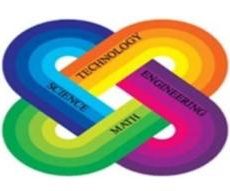We live in a universe where kids are twittering and vlogging. They are snap-chatting the way that my generation would pass folded football notes and they are using tinder to pick dates like we used to look through the football program for cute guys from other schools. If they want to know something, long gone are the days of the card catalog with actual cards and those ginormous books of literature reviews that we perused to write high school research papers. They simply google anything they need to know or see if it has a hashtag. They don’t watch the news, they just look at the Snapchat stories of their personal heroes. When at a sporting event, they don’t have to interact with people around them, they might be tweeting with Samuel Jackson during the UGA football game as he live tweets the game.
No wonder they find reading the Biology textbook boring.
No wonder they find me boring sometimes too.
Teenagers run on Instant Gratification and Communication
Teenagers today live in a world built on instant communication and gratification. Are we close to an education system full of independently running computers that are all guiding the students through an online and responsive curriculum? Are teachers going to become obsolete and replaced by Independent learning specialists with no teaching degrees? Morrison (2014) of Forbes says that it is unlikely. In his article he addresses the teacher-less classroom and the elimination of the “sage on the stage”. Largely he uses research from two dutch scientists, Kirschner and van Merrienboer (2013) and their research into self- directed learning. Morrison, Kirschner and van Merrienboer all converge on the idea of individuals as independent learners being an urban legend.
Sure teenagers are able to self-select YouTube videos and locate the billboard top 100. They can even Google answers to homework questions; however, their skills become less efficient when you ask them evaluate validity of their information and find higher caliber resources. After all, there are many interesting and very convincing websites available to enrich teenagers with false information. It would be easy for them to become invested in saving the North Atlantic Tree Octopus or banning Dihydrogen Monoxide if they did not have an instructor helping them to evaluate and debunk these hoax sites.
Why might a school use an Online Curriculum?
At Madison County High School in Danielsville, Ga. they have seen a problem emerge with their credit recovery program. Previously, they would place students who had failed the year before back into the class the following year with an experienced teacher and peers who also were unsuccessful. These “encore” classes were complicated to teach and many teachers struggled to teach them because they were heavily loaded with high needs students. About 5 years ago that all changed and they adopted an online program called E2020. E2020 is just one of the many companies who market and sell these “graduation solutions” to schools. There is so much pressure to keep graduation rates high that sometimes the quality of the education suffers.
How is Online Learning Different from a Conventional Classroom?
No longer do students repeat a class with a teacher. They are given a computer period with a paraprofessional supervising the room of 40-50 students and they work through curriculum on the computer. It is not very successful, especially in math. Kirschner and van Merrienboer (2013) illustrate why this self-directed learning is not successful. “Learners do not have or do not know how to utilize appropriate strategies when they are left to themselves to manage their own learning environment” (177).
As we continue through this 21st century classroom development, I believe we will see a pendulum swing away from computer assisted instruction and self-directed learning for struggling students back to a more traditional approach. We may see a flux towards Georgia Virtual School or other online or blended learning for gifted or advanced students. No matter what changes do occur in the amount of learner control in the curriculum, it is a hotly debated topic and essential to our progress in education.
Kirschner, P. A. & van Merrienboer, J. J. G. (2013). Do learners really know best? Urban Legends in Education.Educational Psychologist, 48(3), 169-183.



